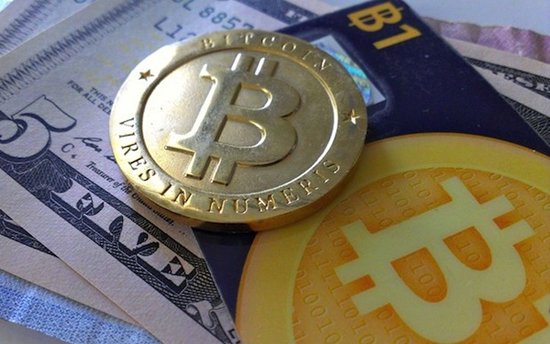 |
| File photo |
BEIJING, Dec.10-- Within one hour following the warning issued by the People's Bank of China (PBOC), one Bitcoin price plunged by as much as 35 percent from 6,970 yuan (1,137 U.S. dollars) to about 4,500 yuan at BTC China, the main Bitcoin trading platform in China.
Chinese authorities stated last week that the country's financial and payment institutions should not accept Bitcoin as legal tender, warning of the risks related to the digital currency.
Bitcoin, a form of digital e-money stored in a virtual wallet, can pass from person to person around the world in secret, allowing users to remain anonymous. It bypasses both banks and banking regulators worldwide.
Bitcoin came to the Chinese public eye in April, when movie star Jet Li's One Foundation received a donation of several hundred Bitcoin to help quake-stricken Sichuan.
The "currency" has been heating up ever since, especially when Bitcoin saw another round of price surges worldwide in early December, with the price of one Bitcoin hitting as high as about 1,117 U.S. dollars on Mt. Gox, the world's best-known Bitcoin trading platform.
But Chinese investors' confidence over Bitcoins has been dented since the central bank's definition of Bitcoin as "no real meaning", and some holders sold their Bitcoins immediately after the PBOC warning.
"I read the warning and thought that in the future, Bitcoin might not be used and circulated in many cases. Its liquidity has been dented," said Zhao Qun, a Bitcoin collector in Shanghai. "That's why I sold all my holdings for about 12,000 yuan, with a profit of 4,500 yuan."
At the same time, the PBOC's warning has led some businesses to change their policies on accepting Bitcoins.
In Shanghai, a realty developer said it had stopped accepting Bitcoins payment for apartments after the PBOC warning.
"We stopped accepting Bitcoins immediately after the central bank announcement," said Luo Wen, a public relations manager at Shanda Interactive Entertainment, which is also the developer of a property project in Shanghai.
The company said in October that homebuyers could use Bitcoins to pay for its apartments near the Zhangjiang high-tech industrial park in the city. But nobody ever actually bought one in the project using Bitcoins, Luo said.
"We launched this campaign when the value of Bitcoins was around 1,000 yuan per coin, but then it surged to a peak of 8,000 yuan. We revised our accepted 'exchange rate' on a daily basis, but I guess no one would trade something appreciating that fast."
The value of Bitcoin does not rely on the economy of any country or the financial performance of institutions. All that counts is market confidence.
"Lack of liquidity, a small market and low recognition mean Bitcoin may not last long. Investors who entered the market early rode on too many rollercoasters" said Gao Chaoxin, an investment manager with the Beijing-based Yeequn Investment & Holdings Ltd.
"It's 'tulip mania' all over again," said Ye Liming, president of an asset management company in the city of Wuhan, central China.
Ye said such wild price fluctuation is normally not good for ordinary investors.
Liu Bo, a graduate student majoring in computer science, said he bought five Bitcoin for 600 yuan each and had earned more than 20,000 in the past few days, but he won't stay in the market.
"It's too scary. Speculators are too crazy," Liu said.
The risk of money laundering by virtual currency is taken into account as well by the Chinese central bank.
The PBOC told Bitcoin-transaction online platforms to register at China's telecom industry regulator in accordance with laws, and to carry out anti-laundering obligations by identifying its consumers and reporting suspicious transactions.
The Chinese central bank will continue monitoring activities involving Bitcoins and related risks, it added.
The warning was issued in a notice jointly released by the People's Bank of China (central bank) and four ministerial departments -- Ministry of Industry and Information Technology, China Banking Regulatory Commission, China Securities Regulatory Commission and China Insurance Regulatory Commission.
Financial regulators around the world have taken different stances on Bitcoins.
In the Netherlands, the central bank issued a cautionary note on Tuesday reminding people that there's no central issuer to be held liable for the virtual currency.
Depositors and investors who use Bitcoins could lose their money, the central bank said.
Germany's Finance Ministry in August recognized the Bitcoin as a "unit of account", meaning it can be used for tax and trading purposes in the country.
The virtual currency has been banned from trading in Thailand since July.
 Heavy cargo flights taking off
Heavy cargo flights taking off In pictures: PLA's digital equipment
In pictures: PLA's digital equipment  Americans mark Thanksgiving Day with parades
Americans mark Thanksgiving Day with parades Love searching stories in cities
Love searching stories in cities  Shanghai shrouded in heavy fog
Shanghai shrouded in heavy fog Office ladies receive ‘devil’ training in mud
Office ladies receive ‘devil’ training in mud China's first nude photographer
China's first nude photographer Selected sports photos of the week
Selected sports photos of the week Treasure of Chinese culture- Nuo Dance
Treasure of Chinese culture- Nuo Dance  Youths in Night club: photo story
Youths in Night club: photo story Models dazzle at Int'l Yacht Model Pageant
Models dazzle at Int'l Yacht Model Pageant  Crystal scenery in China: Jilin fog glaze
Crystal scenery in China: Jilin fog glaze  Tianjin holds first pole dance championship
Tianjin holds first pole dance championship  Annual Santa Claus parade held in Canada's Montreal
Annual Santa Claus parade held in Canada's Montreal China's aircraft carrier passes through Taiwan Strait
China's aircraft carrier passes through Taiwan StraitDay|Week|Month